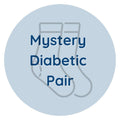Can Diabetics Eat Cheese?
Posted by SIMON LIM


Can diabetics eat cheese? This is a question that many people have. The answer is yes, but with conditions. People with diabetes can eat cheese in moderation. Cheese is a high-fat food, and it can be difficult for people with diabetes to manage their blood sugar levels when they consume too much of it.
However, if you are careful about the types of cheese you eat and how much you consume, you can definitely include it in your diet. In this blog post, we will discuss the health benefits of cheese for diabetics and provide some tips on enjoying it safely!
Cheese in Diabetic Diet
Cheese can be a nutritious part of a diabetes-friendly diet. It is an excellent source of protein and calcium, and it can also help you feel full and satisfied after meals. Choose lower-fat and low sodium varieties. It would be best to watch your portion sizes, as cheese can be high in calories. A good rule of thumb is to limit yourself to one ounce (28 grams) of cheese per day.
Benefits of Cheese for Diabetics
In addition to being a nutritious food, cheese can also offer some health benefits for people with diabetes.
- Cheese can help improve blood sugar control and reduce the risk of developing type II diabetes, according to research.
- Cheese is also a good source of conjugated linoleic acid (CLA), a type of fatty acid that has been shown to promote weight loss and improve insulin sensitivity.
- Cheese can aid in the maintenance of normal glucose levels since most cheeses have a very low GI rating because they contain very little or even no carbs at all. On the other hand, some cheeses have more than others do.
- Cheese contains a high amount of protein. Protein helps balance out the spikes in blood sugar when consuming carbohydrates. Protein in cheese also helps people feel full for longer, reducing their appetite for other unhealthy meals.
Risks of Eating Cheese for Diabetics

Even though cheese can be a part of a healthy diet for people with diabetes, there are some risks to consider.
-
Cheese contains a high level of dairy fat and calories
According to many studies, consuming a diet high in dairy fat which is not the healthiest option for lowering the risk of developing cardiovascular disease. It is possible to consume dairy fat in moderation.
It is suggested that less than ten percent of your daily calorie intake should come from saturated fats. Because of the high-calorie content of cheese, proper portion control is essential. Cheeses with less fat or none at all could be considered healthier alternatives.
-
Cheese can cause allergy and intolerance
Some people are allergic to dairy, while others cannot tolerate consuming one. Though there are cheese alternatives that do not contain dairy products; however, these cheeses often have a lower protein content.
-
Cheese contains salt
Those with diabetes should cut back on their sodium intake since too much sodium can cause high blood pressure and other cardiovascular issues. Some cheeses have a higher salt content than others. It would be best to read the labels and select options with a lower salt content whenever it is available.
How to Include Cheese in a Diabetic Diet?
There are many delicious ways to include cheese in your diet. Here are a few ideas:
- Add cheese to salads or use it as a topping on whole-grain toast
- Enjoy a cheese and fruit plate as an afternoon snack
- Make a healthy omelet with egg whites, veggies, and low-fat cheese
- Top a baked potato with cottage cheese or yogurt instead of sour cream
You can enjoy cheese while still keeping your blood sugar levels in check. Just be sure to choose lower-fat varieties and watch your portion sizes. Cheese can be included in your diabetes-friendly diet with a bit of planning!

Takeaways
So can diabetics eat cheese?
Many people think that cheese is off-limits for those who have diabetes. However, cheese can be a healthy part of your diet if you have diabetes as long as you take the right measures. The key is to eat it in moderation and combination with other healthy foods.
Cheese is high in protein and calcium, which are paramount for people with diabetes. It also contains conjugated linoleic acid, a type of fat that has been shown to help improve blood sugar control. When incorporating cheese into your diet, choose low-fat varieties and pair them with other nutrient-rich foods.
SHARE:




































